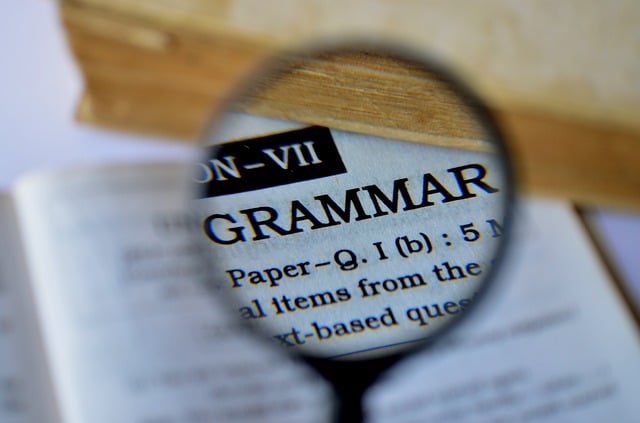English Review: Master Indefinite and Definite Articles

Photo via Pixabay
Alright, English learners, it’s been a long time coming and we’ve heard you loud and clear: English sucks is difficult.
And when I mention just learners, I really mean every single speaker, from native to novice. We can all agree that the English language is filled with traps. Whether it be dialect differences, homophones, homonyms, irregularities are the only regularity. For instance, ‘bear’ and ‘bare’ sound the same but are spelled differently, phrasal verbs were simply created to confuse everyone, and spelling mistakes are a constant.
Now, luckily for you, there are a few fundamentals in English that aren’t necessarily unique and tend to be replicated in other languages. For example, vocabulary in French, Spanish, Portuguese, Italian, and Romanian all descend from Latin, so spelling kind of follows a trend.
In Slavic languages, the ‘a’ or ‘az’ is used in the same way as the ‘a’ or ‘an’. Similarly, in German, articles differentiate depending on gender, case, and number, while in Chinese, the complete construct of an article describing a noun is impossible.
However, in English, the use of indefinite and definite articles is a must, since articles are adjectives and the entire purpose of an adjective is to describe a noun. And that is exactly the point that we will be focusing on in today’s lesson.
Explore our English courses with qualified native speakers in your city or online!
You’ve all heard of the golden rule, right? Well, consider this one the golden rule of indefinite and definite articles in English:
In English, there are two indefinite articles: a or an and only one definite article: the. The is used for particular nouns and a/an for non-particular nouns.
So, but let’s break this down into real English. Pun intended.
Indefinite and definite articles define nouns, but which one you use will determine how the noun is understood.
Let’s bring on the examples: Go take the cookie. – ‘The’ speaks about a particular cookie. One you and the person you’re addressing know about. Probably the double fudge one, let’s be honest, so you use a definite article.
Go take a cookie. – ‘A’ refers to any old cookie in general, like a macadamia nut cookie or a peanut butter chocolate cookie, so you use an indefinite article.

Photo via Pixabay
Indefinite Articles
If someone says to you, “I want a purse for Christmas.” Which purse does that person want?
Answer: That person is referring to any purse, not just to one specific purse. So, you can buy the person a brown purse, green purse, or yellow-and-blue striped purse.
Still having a bit of trouble? Don’t worry, we’ve got some article rules to live by (we hate to see you struggle):
- a + singular noun that begins with a consonant: a girl, a bike, a cat.
- an + singular noun that begins with a vowel: an octopus, an anteater, an isotope.
- a+ noun that begins with a consonant sound: a velociraptor, a drink, a cradle.
- an + nouns with a pronounced “h” : a hockey puck an + silent “h”: an hour.
Exception, because there’s always an exception: A/an historical event.
When choosing a/an it is completely dependent on the initial sound of the adjective that follows the article.
Example:
A bike helmet.
An indeterminate disease.
(an + singular noun with vowel)
‘A/an’ also normally go with countable nouns.
Example:
I want a glass of milk.
She needs an umbrella.

Photo via Pixabay
The Definite Article
If someone tells you that they want the cat with brown spots, what does that person want?
Answer: That person is referring to a specific cat that they have seen and identified before. In this case, they want the cat with brown spots that they already know, and not any cat with brown spots.
Just a few more rules of thumb:
– You do not use ‘the‘ in geography regarding country, territories, cities, streets, and states.
Example:
Always: Seoul, Italy, Washington Ave.
– Do use ‘the’ for the names of rivers, oceans, and geographical areas.
Exception: The United States.
Example:
The Atlantic, the equator, the Nile.
– ‘The’ signifies that a noun is definite and refers to a member of a group.
Example:
The motorist that stole my purse road away.
– ‘The’ can be used with uncountable nouns
Example:
I enjoy watching the rain. Or I enjoy watching rain. The first is a particular time when it rains and another is rain in general.

GIF via Giphy
This woman doesn’t have to be you! English is a conundrum of a language and getting confused by everything from articles to other aspects of the language is just a part of the learning process, also a part of the fun. Indefinite and definite articles aren’t that tricky though in comparison to other aspects of the language. For now, take your time and try your best to never get discouraged. Keep on learning the English!
This article was published on March 27, 2017, and was edited for style and comprehensiveness on July 9, 2021.
Explore our English courses with qualified native speakers in your city or online!
